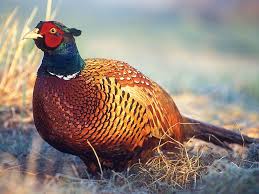Game Animals, play a significant role in the realms of wildlife management, conservation, and hunting culture. Defined as animals that are hunted for sport, food, or trophies, these species range from deer and elk to birds and fish. This article explores the concept of game animals, their ecological importance, the ethical considerations surrounding hunting, and the role they play in conservation efforts.
What Are Game Animals?
Game animals are typically classified into two categories: big game and small game.
- Big Game: This category includes larger mammals such as deer, elk, moose, bears, and wild boars. These animals are often sought after for their meat, trophies, and the challenge they present to hunters.
- Small Game: This group comprises smaller animals like rabbits, squirrels, and various bird species (such as pheasants, ducks, and quail). Small game hunting is often seen as a way for novice hunters to gain experience.
Ecological Importance
Biodiversity and Ecosystem Balance
Game animals are integral to maintaining ecological balance. They contribute to biodiversity, which is essential for healthy ecosystems. For instance, herbivores like deer play a crucial role in shaping plant communities, while predators maintain populations of smaller game, ensuring that no single species dominates the ecosystem.
Habitat Management
Hunting can also be a tool for habitat management. Regulated hunting helps control animal populations, preventing overgrazing and habitat destruction. This management strategy can lead to healthier wildlife populations and more robust ecosystems.
Hunting Ethics and Regulations
Responsible Hunting Practices
Ethical hunting practices are paramount to ensure the sustainability of game animal populations. Responsible hunters adhere to regulations and guidelines that govern hunting seasons, bag limits, and methods. These practices not only protect wildlife but also promote respect for nature.
Conservation Efforts
Many hunters are deeply committed to conservation. Organizations like Ducks Unlimited and the Rocky Mountain Elk Foundation work to preserve habitats, restore ecosystems, and promote sustainable hunting practices. Funds generated from hunting licenses and taxes on hunting equipment often support conservation initiatives.
The Role of Game Animals in Culture and Tradition
Hunting as a Heritage
For many communities, hunting game animals is a cherished tradition passed down through generations. It fosters a connection to nature, promotes self-sufficiency, and provides a sense of community among hunters. In some cultures, hunting is not just a sport but a way of life that honors the relationship between humans and the environment.
Culinary Delights
Game animals also provide unique culinary experiences. Many chefs and food enthusiasts appreciate the rich flavors of wild game, which is often considered healthier and more sustainable than commercially farmed meat. Dishes made from venison, wild boar, and game birds are celebrated in various cuisines around the world.
Challenges Facing Game Animals
Habitat Loss
One of the most pressing challenges for game animals is habitat loss due to urbanization, agriculture, and climate change. As natural habitats shrink, wildlife populations may decline, leading to imbalances in ecosystems.
Poaching and Illegal Hunting
Poaching poses a significant threat to game animals, particularly in regions where certain species are targeted for their horns, antlers, or other body parts. Illegal hunting can severely impact populations and disrupt ecological balance.
Conclusion
Game animals hold a crucial place in our ecosystem and culture, contributing to biodiversity, responsible hunting practices, and conservation efforts. Understanding the importance of these animals helps foster a greater appreciation for wildlife and encourages sustainable practices that protect both game populations and their habitats. As we navigate the complexities of wildlife management and conservation, it is essential to respect the delicate balance between human activity and nature, ensuring that future generations can enjoy the rich heritage of hunting and the beauty of wildlife.




